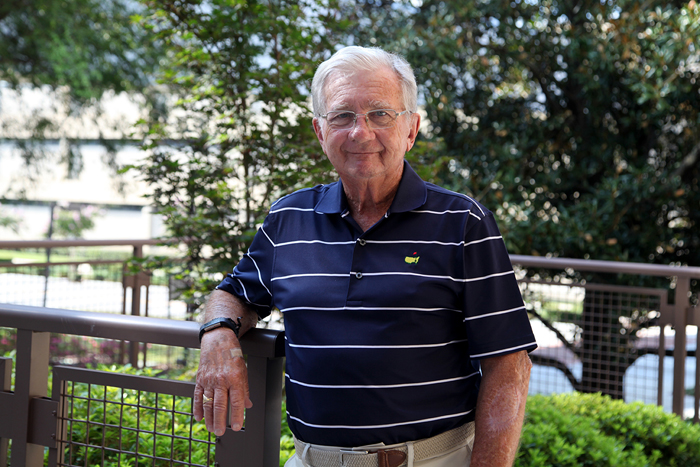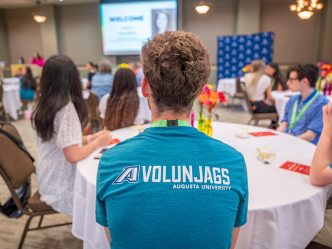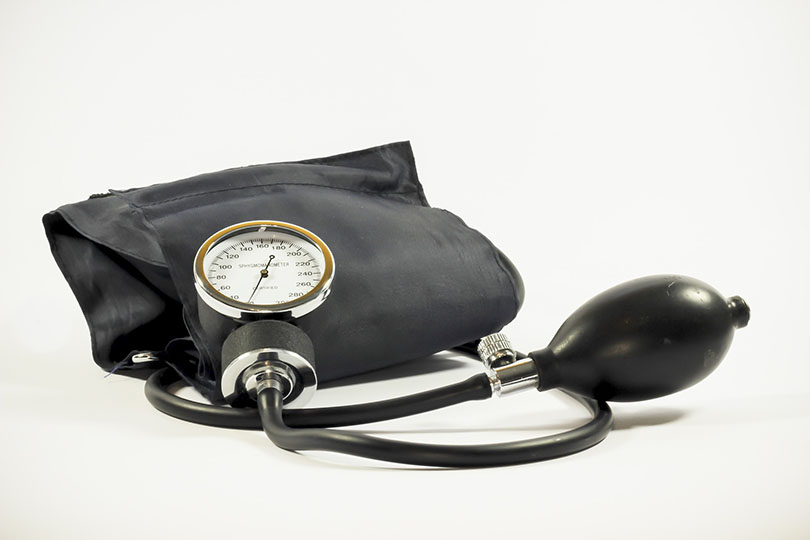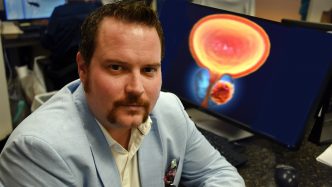Thor Peckel shares his name with Marvel’s warrior god, and he, too, is a fighter. The villain he battles is polycystic kidney disease.
Thor is one of about 600,000 people in the United States with PKD. Put simply, multiple cysts grow in the kidneys severely restricting the function of the pair of bean-shaped organs. Essentially, the kidneys can no longer sift out harmful waste products and chemicals from the body or filter out excess fluid to form urine.
About 50 percent of people with PKD experience kidney failure by age 60, and it increases to 60 percent by age 70, according to the National Kidney Foundation.
The bulk of Thor’s issues began about 25 years ago around age 52, when his kidneys began failing.
People with kidney failure need dialysis, also called hemodialysis. Dialysis is a treatment that does the work for the kidneys.
“We did home hemodialysis for several years,” said Thor, “but those needles are big, which is no day at the beach, I tell you.”
His wife Judi is a registered nurse. Thor said she made his treatments more tolerable.
While the dialysis worked for a decade or so, Thor’s kidneys continued to deteriorate, to the point that he needed a new one.
“I was dying; I had end-stage renal disease,” Thor said.
“His kidneys were twisted up,” Judi said. “He ended up with a bowel obstruction and other issues, too.”
Thor sought help from the multidisciplinary team of experts at the Carlos and Marguerite Mason Solid Organ Transplant Center at AU Medical Center, the only kidney transplant center in Georgia outside of Atlanta. Thor was put on the United Network for Organ Sharing’s waiting list for a new kidney.
He had to give up his job at his own company far sooner than he wanted as the search began for a donor.
Thor’s adult sons wanted to donate, but both were rejected. His wife also volunteered.
“I was a good match, but because of my age, they said no,” Judi said.
After fighting polycystic kidney disease for 15 years, a match was found and Thor had transplant surgery and received his kidney.
“It was Sept. 9, 2009, 9/9/09. That’s an easy day to remember,” he said. This month, as the transplant program celebrates its 50th anniversary, Thor marks nine years since his transplant.
“Of course, once you get the kidney, there are other steps you must take to stay healthy,” he said, “like 13 pills in the morning and seven at night. They don’t want the kidney to be rejected, so I take all that.”
“Thor has had some difficulties, but overall his kidney is working well,” Judi said. “We still try to do as much as we can while we can.”
For Thor that includes serving as a patient advisor for the transplant program.
“We have talked to the medical students five or six times about our journey with end-stage renal disease,” he said. “If they are going to be doctors they should be aware of what the patients are going through in this situation.”
AU Health has more than 200 patient advisors who volunteer their time to help impact the care of others in everything from pediatrics to neurosurgery.
“We try to make it easier for patients coming for a transplant. We talk about the insurance issues and how we have to get approval before we can ever get on the transplant list, family issues, our whole journey,” Thor said. “It’s important to prepare others on what to expect in the transplant process.”
One major piece of advice he offers: “You’ve got to stay active. You can’t sit around doing nothing.”
Thor still goes to the gym often and plays tennis regularly. “He can’t beat me, though,” Judi teased.
The couple, who love to travel, just returned from a trip to Mexico and have more trips planned for the fall. “I’m still getting around,” Thor laughed.
Indeed he is. Not bad for a 76-year-old, considering his circumstances.
It’s the kind of resilience that even a Marvel hero can admire.
Since 1968, AU Health’s Kidney and Pancreas Transplant Program has conducted over 2,600 transplants and continues being a nationwide leader in transplantation care. On Sept. 29, the medical center will hold a 50th Anniversary Celebration for the program giving patients, donors and staff an opportunity to meet and share their stories. For more information about this event or the Kidney and Pancreas Transplant Program, call 706-721-2888.
About AU Health’s Transplant Program
Augusta University Health is home to the 14,000-square-foot Carlos and Marguerite Mason Solid Organ Transplant Center, and over 2,600 lifesaving kidney and pancreas transplants have been performed at the medical center since 1968. AU Health is one of 19 hospitals in the United States and the only medical center in Georgia, to be selected to take part in the initial Collaborative Innovation and Improvement Network that aims to improve kidney transplantation nationwide. AU Health is also a two-time national Kidney Transplant Center of Excellence.
 Augusta University
Augusta University




